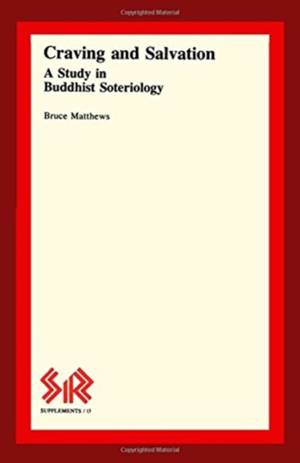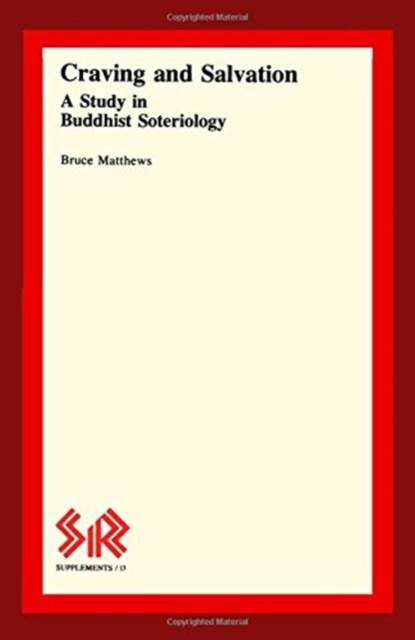
- Afhalen na 1 uur in een winkel met voorraad
- Gratis thuislevering in België vanaf € 30
- Ruim aanbod met 7 miljoen producten
- Afhalen na 1 uur in een winkel met voorraad
- Gratis thuislevering in België vanaf € 30
- Ruim aanbod met 7 miljoen producten
Zoeken
Omschrijving
Is there any escape form the awareness of pain and the bonds of an unending cycle of life? Why are human subject to craving" What is the nature human beings? The Buddhist understanding of salvation is based upon such queries.
A thorough grasp of the function of craving in religious life is strategic to an understanding of Buddhism, yet its role in the Buddhist plan of salvation is easy to oversimplify and misinterpret. Matthews examines the concept of craving in Buddhism from both a phenomenological and religious perspective. He btings to the task a critical examination of key canonical texts of the Sutta Pitaka (Nikayas) as well as extensive travel in research of the meaning of craving for contemporary Buddhists, from learned monks to lay villagers. Having established the Buddhist perspective on how craving arises, how it affects the mind, and how it can be redirected, the volume concludes with spiritual implications of craving: crucial to awareness and freedom--emancipation--is the engagement and harnessing rather than suppression of craving.
The volume will be of interest to students of Buddhism, historians of religion, and persons interested in basic human questions.
A thorough grasp of the function of craving in religious life is strategic to an understanding of Buddhism, yet its role in the Buddhist plan of salvation is easy to oversimplify and misinterpret. Matthews examines the concept of craving in Buddhism from both a phenomenological and religious perspective. He btings to the task a critical examination of key canonical texts of the Sutta Pitaka (Nikayas) as well as extensive travel in research of the meaning of craving for contemporary Buddhists, from learned monks to lay villagers. Having established the Buddhist perspective on how craving arises, how it affects the mind, and how it can be redirected, the volume concludes with spiritual implications of craving: crucial to awareness and freedom--emancipation--is the engagement and harnessing rather than suppression of craving.
The volume will be of interest to students of Buddhism, historians of religion, and persons interested in basic human questions.
Specificaties
Betrokkenen
- Auteur(s):
- Uitgeverij:
Inhoud
- Aantal bladzijden:
- 150
- Taal:
- Engels
- Reeks:
- Reeksnummer:
- nr. 13
Eigenschappen
- Productcode (EAN):
- 9780889201477
- Verschijningsdatum:
- 1/01/2006
- Uitvoering:
- Paperback
- Formaat:
- Trade paperback (VS)
- Afmetingen:
- 152 mm x 229 mm
- Gewicht:
- 247 g

Alleen bij Standaard Boekhandel
+ 72 punten op je klantenkaart van Standaard Boekhandel
Beoordelingen
We publiceren alleen reviews die voldoen aan de voorwaarden voor reviews. Bekijk onze voorwaarden voor reviews.











